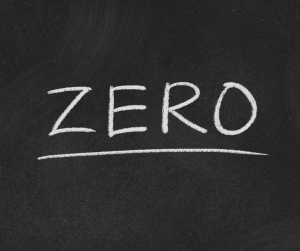A zero sum game
 Labour leader Sir Keir Starmer has U-turned on taking away the charitable status of private schools because the effect would be devastating.
Labour leader Sir Keir Starmer has U-turned on taking away the charitable status of private schools because the effect would be devastating.
Its removal would also have had the effect of schools abolishing assisted places, bursaries and scholarships for poorer students.
Starmer would have been criticised for harming the education of poor children, so he quickly back-tracked, as is his habit.
To have charitable status, independent schools must demonstrate that they make provision for those of modest means – usually by providing scholarships and bursaries.
If their charitable status were removed, schools would no longer have to provide them.
Instead of removing charitable status, Starmer has announced that his government would charge VAT on school fees. There are two reasons for this. One is political; it’ll be seen as targeting just wealthy people. It’s not accurate but that’s the perception he hopes will result. The other reason is financial.
But he has miscalculated.
So I did some calculations for him:
The belief that putting VAT on school fees will produce significant revenue is a fallacy.
Starmer hopes to raise £1.7 billion from this controversial policy and to plough it back into the state system.
There are about 620,000 children being educated in the private system at present (about seven per cent of children).
The VAT will increase fees by around £4,000-£5,000 per annum and many of the parents will have more than one child in the system, which will prove impossible for them.
It looks like an easy win for Starmer because it appears to raise nearly £2 billion if all goes to plan. However, this is unlikely for the following reasons:
Many parents will not be able to pay the increased fees and will be forced to put their children into the state system.
This will be exacerbated by the fact that many of these schools would no longer be able to afford as many bursaries and scholarships that reduce a child’s fees, because their income would fall.
Some independent schools on the margin will close, as happened during the last recession. This will send many more children back into the state system. The top schools will always survive but many middle-ranking ones will just go to the wall.
The cost-of-living crisis with high inflation and increased mortgages already means that many parents can no longer afford the fees they currently pay – again, more children are ending up in the state system.
Every child that is educated in the private system saves the government about £7,500 a year because parents are in effect paying twice. They pay for their child to be educated in the state system through their taxes, and also pay fees for a private school place. You could argue that it saves the government £15,000 a year per child because they are saving on a state place and the parents are buying a place on the private system.
This is the likely end game scenario. Around one fifth of children (124,000) currently being educated in the private system will probably end up back in the state system.
It costs the government about £7,500 for each child per year.
If we multiply 124,000 by £7,500 it comes to £930 million (nearly £1 billion).
If we take into account the doubling effect described above, it will cost around £2 billion.
The effects of Starmer’s VAT hike on school fees will in fact cost any future government a lot more money.
Plus the fact that on top of this the state system cannot take in all these children without considerable investment in more teachers and classroom space.
Private school teachers can be recruited, but building more classrooms is expensive and won’t happen quickly.
For a headline, Starmer is willing to hammer the education system.
And let’s not forget the advantage Starmer received from a private school education.
It was initially a grammar school but became independent in 1976 while Starmer attended, and he was exempt from paying fees.
Aged 16 he received a bursary.
He had the privilege of an independent school education for free but seems determined to wrest this pathway from aspirant parents who want to pursue the independent school route for their children.